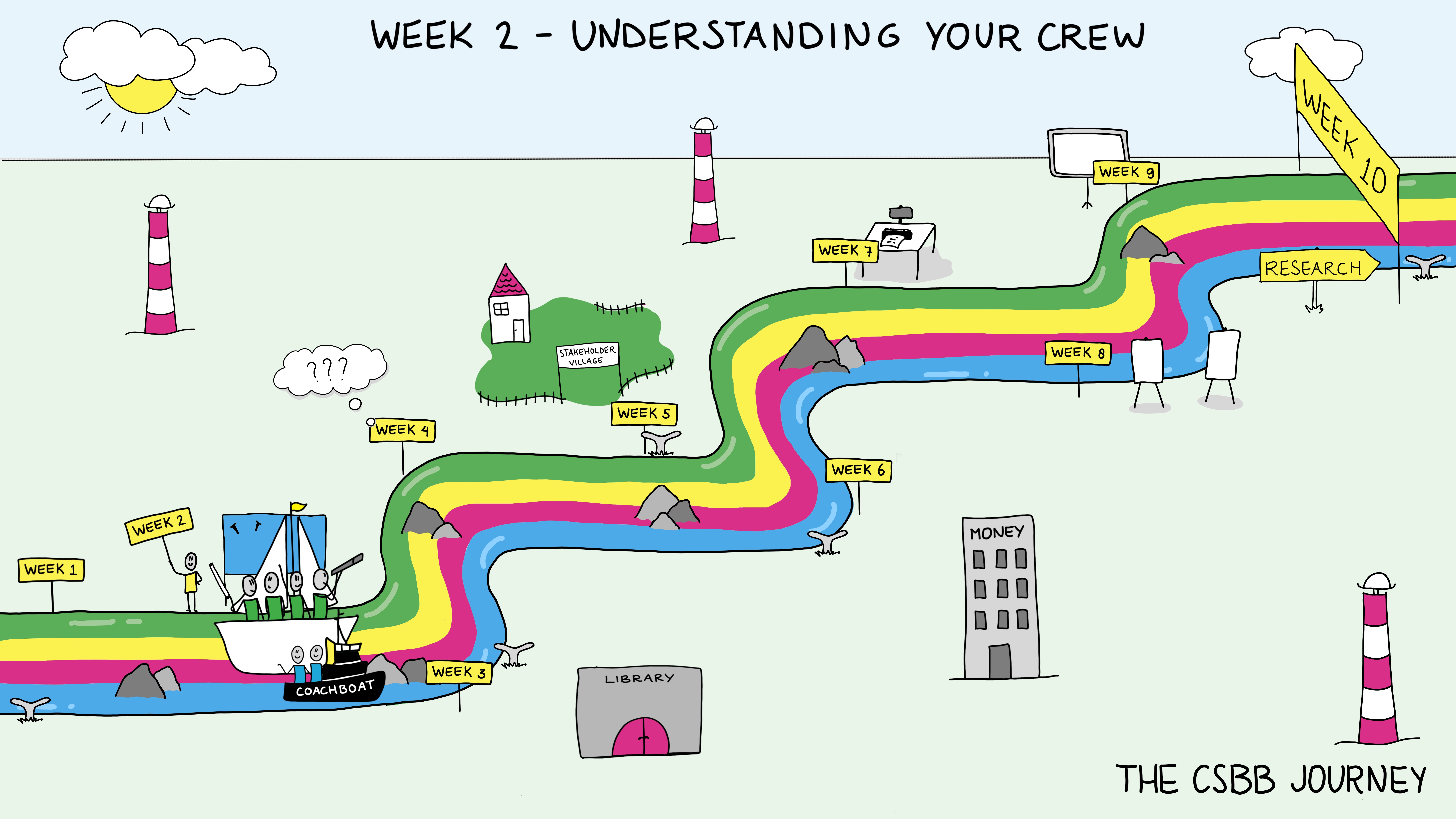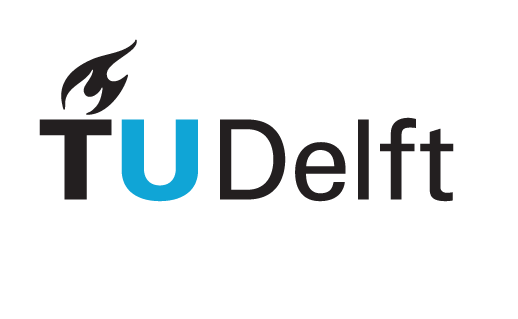
Week 1.2: Understanding your crew#
In science (and other work environments), it takes a team working together to build remarkable things or solve big problems. Things often go wrong when the group does not spend time working on understanding each other from the beginning. A team can benefit from everyone’s talents and input, so it is important to make sure that all team members feel valued for their contributions and are able to participate fully and authentically. This week, you will further develop your skills and habits for working in teams and appreciation for the skills and insight everyone brings to a group. The minor provides time and guidance for you to figure out who and how you want to be in group work. Getting to know each other should be fun.
In the coming weeks, your skills in working together with your team will be vital to the success of your project . One of the most fundamental skills is understanding your own perspectives and knowing how to learn about other people’s perspectives. These are fundamental skills in any endeavour—you will constantly find yourself part of various teams, whether for a short-term project or a career-length collaboration. It could be in science, or other fields, or volunteer organizations. Your family is its own kind of collaboration with its own kind of challenges.
Taking time to build these fundamental skills will start us off with a solid foundation for collaboration and exploration
This week consists of:
Monday
Science Spotlight
Workshop: What is Transdiciplinarity
Wednesday
Workshop: Perspectives and Values with the Team
Friday
Symposium: Emotional intelligence skills
Workshop: What is Transdisciplinarity?#
Complex problems do not have a simple solution. Different people experience these problems differently; they might have conflicting interests, or the solution might affect them in very different ways. Complex problems often need a transdisciplinary approach. But what are these complex problems? And what is transdisciplinarity? And how do we do transdisciplinary collaboration right?
This workshop is meant to introduce students to the concept of transdisciplinarity. The initial part of the workshop will focus on complex problems, and then discuss the differences between disciplinary, multi-, inter- and transdisciplinary collaborations and their various definitions. We will not only define them but also list the benefits and challenges of these collaboration types. Then, we will discuss the role of collaboration skills from the perspective of professional development. Finally, we will dive into the different processes of inter- and transdisciplinary teams that are crucial for effective teamwork.
Key Concepts#
What is transdisciplinarity?
What are characteristics of transdisciplinary groups?
What are difficulties that come with transdisciplinary work?
What are the advantages of transdisciplinary groups?
What kind of learning steps do professionals go through?
What are the essential team processes needed for transdisciplinary work?
Learning goals#
Assess group processes within their own research group during a project.
Work effectively in a group which consists of members from different academic disciplines and backgrounds.
Collaborate effectively with other group members, other groups and the case owners/experts in the field.
Explain how intercultural differences play a role in collaboration—this includes social (language, nationality, etc.) and also professional (business vs education, medicine vs engineering) differences and apply this knowledge to the collaboration.
Reflect on the various phases of the process, the challenges and problems that were encountered, and what was learned from this.
Workshop: Perspectives and Values with the Team#
The teams will apply the knowledge and skills they have gained so far to create a physical model of the teams’ transactive memory, create team efficacy and overcome some types of team conflicts.
The activity during Wednesday’s workshop is based on Monday’s workshop on transdisciplinarity. You will reflect in your groups on your disciplinary background, knowledge, skills, values and emotions (the elements of the team’s transactive memory) at this stage of the group work. Then you will discuss these and create the group’s 2D transactive memory map showing overlaps between the team members. This workshop guides teams in making each other aware of what is common between team members, realizing substantial differences between worldviews, values, priorities or ways of thinking. We will dedicate time to discuss the similarities and differences. This workshop is a fundamental step that allows the teams to realize where the differences between members come from instead of making biased and possibly invalid assumptions, therefore avoiding some common team conflicts and creating a safe environment and a common framework to work together effectively over the coming weeks. You will develop the foundations for your group, by developing a Team contract about shared expectations and working methods.
Key Concepts#
Transactive memory
Team efficacy
Team conflict
Psychological safety
Understanding Diversity
Learning goals#
Assess group processes within their own research group during a project.
Work effectively in a group which consists of members from different academic disciplines and backgrounds.
Collaborate effectively with other group members, other groups and the case owners / experts of the field.
Explain how intercultural differences play a role in collaboration—this includes social (language, nationality, etc.) but also professional (business vs education, medicine vs engineering) differences and apply this knowledge to the collaboration.
Be aware of and reflect on the various phases of the process, the challenges and problems that were encountered, and what was learned from this.
Group Activities: Team Contract#
This week the teams will research and read to explore the research topic. You should be spending a lot of time with your group discussing ideas and what you’re reading. Identifying what’s interesting that you’d like to look at more and starting to narrow your group topic and identify a question.
A team contract should include a shared values statement, expectations of behaviour, agreement on deadlines and work processes. It should also discuss how you will handle conflicts or when something isn’t going according to the team contract. It should be developed by consensus such that everyone agrees to all parts of it. Your supervisor and coach are part of your group and should be included in your team contract. And it should be regularly updated as things change.
You should integrate the personal learning goals you formulated last week.
Discussion Questions#
What are you really good at?
What skills do you bring to this project?
What do you find exciting in what you are reading or think is worth pursuing?
What do you want in collaborative environments to be successful?
What would you like to develop in yourself/or as a group?
What are you likely to want help with?
What are your pet peeves in working in groups and how do you handle them?
How does it show up in groups when emotional needs are not being met in the group?
Weekly Submitted Assignments#
Group#
Team Contract including all the elements described in Group Activity (1-2 pages)
Individual#
How does your background (cultural, educational, family) inform your perspectives? (½ page)
References#
Interesting reading: How to be Interdisciplinary - by Nils Gilman (substack.com)
Parts of the first lecture are based on The NAS report on Enhancing the Effectiveness of Team Science
